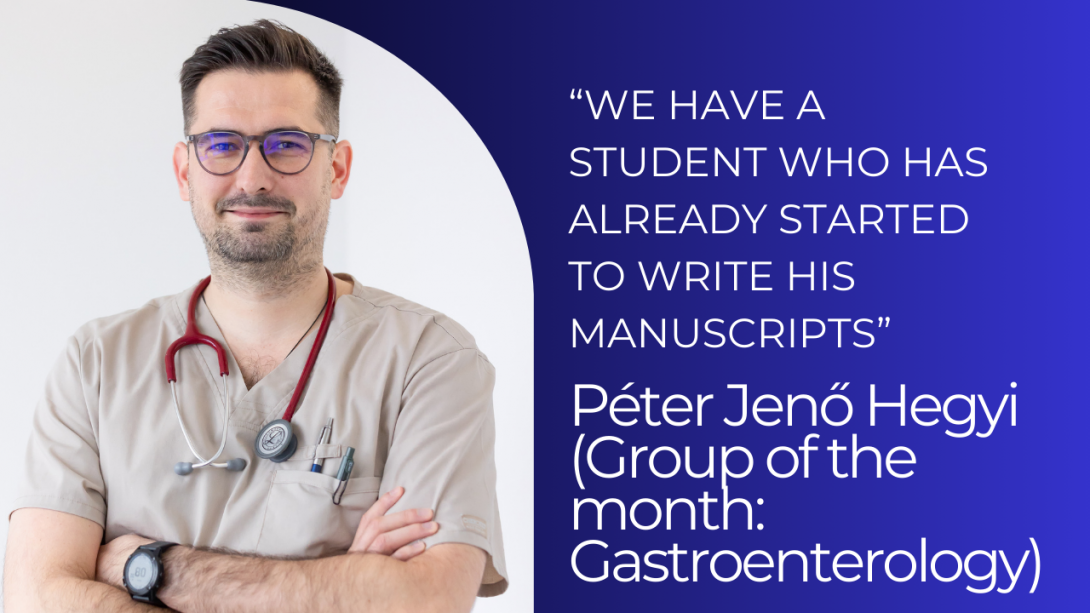
Their students have been working intensively since last September and they are making great progress with their research. There is an interdisciplinary work going on, involving several TDK students. In March, the Gastroenterology Group (Year-1) was named Group of the Month.
Clinical specialists and surgical, internal medicine, gastroenterology, and clinical oncology residents are also part of the Gastroenterology Group, and alongside them, the group includes a clinical dietitian, a nutritional scientist, a biologist, and a psychologist. “A great strength of our group is that the Ph.D. students come from a wide range of hospitals, so they can bring translational medicine to many institutions and introduce it to other clinicians. We also benefit from involving Ph.D. students in the research. As medical students, they greatly help the progress of the projects, and they can learn a lot themselves and can continuously improve. I also took on such tasks as a student, and it was a great help to me later on,” says Dr. Peter Jenő Hegyi, who co-leads the Gastroenterology Group (Year-1) with Dr. Tibor Gyökeres.”
Many of the students are researching acute pancreatitis and pancreatic cancer. On of them, for example, investigates whether endoscopic sampling of pancreatic diseases is more efficient if the samples are immediately examined macroscopically by the endoscopists themselves. The results suggest that this could be a major breakthrough, because the sample does not always contain valuable tissue, so the sampling often needs to be repeated, which, in this case, can be done immediately. This can bring forward the diagnosis by weeks, which is a huge advance in pancreatic cancer treatment, and can affect whether the patient remains operable. Some students evaluate the prognostic accuracy of imaging modalities in this type of cancer.
“We have a Ph.D. student who is researching risk factors of pancreatic cancer, while another is trying to improve the treatment of acute thrombosis as a complication of severe pancreatitis. There are no recommendations for this condition, and it is not obvious which anticoagulation should be used in such cases and for how long. There is also an interesting study comparing the efficacy of neoadjuvant chemotherapy to upfront surgery in resectable pancreatic cancer. This is an important topic at international surgical conferences these days.” Some of the Ph.D. students are doing research on other diseases. One of them, for example, is investigating the effect of exclusive enteral nutrition on surgical outcomes in inflammatory bowel disease. Another fascinating study is investigating the prevalence of gastrointestinal diseases among patients with eating disorders.
“Our students have made excellent progress with their projects. The preliminary results of the studies have already shown whether or not the clinical hypotheses are proven. We have a student who has already started to write his manuscripts, and several have already started to write drafts. It is important to know that in research, rejecting a hypothesis can also be a good result. Conclusions can also be drawn from such cases, and therefore, patient care can be improved. We always stress this to our students. I want to emphasise the essential contributions of the PhD students, methodological supervisors, and statisticians who significantly elevate the quality of our projects and ensure the accuracy of our meta-analytic calculations and interpretations. We are now at the pivotal stage: interpreting and discussing the results of the meta-analysis in order to prepare the article.”
(Szabó Emese)